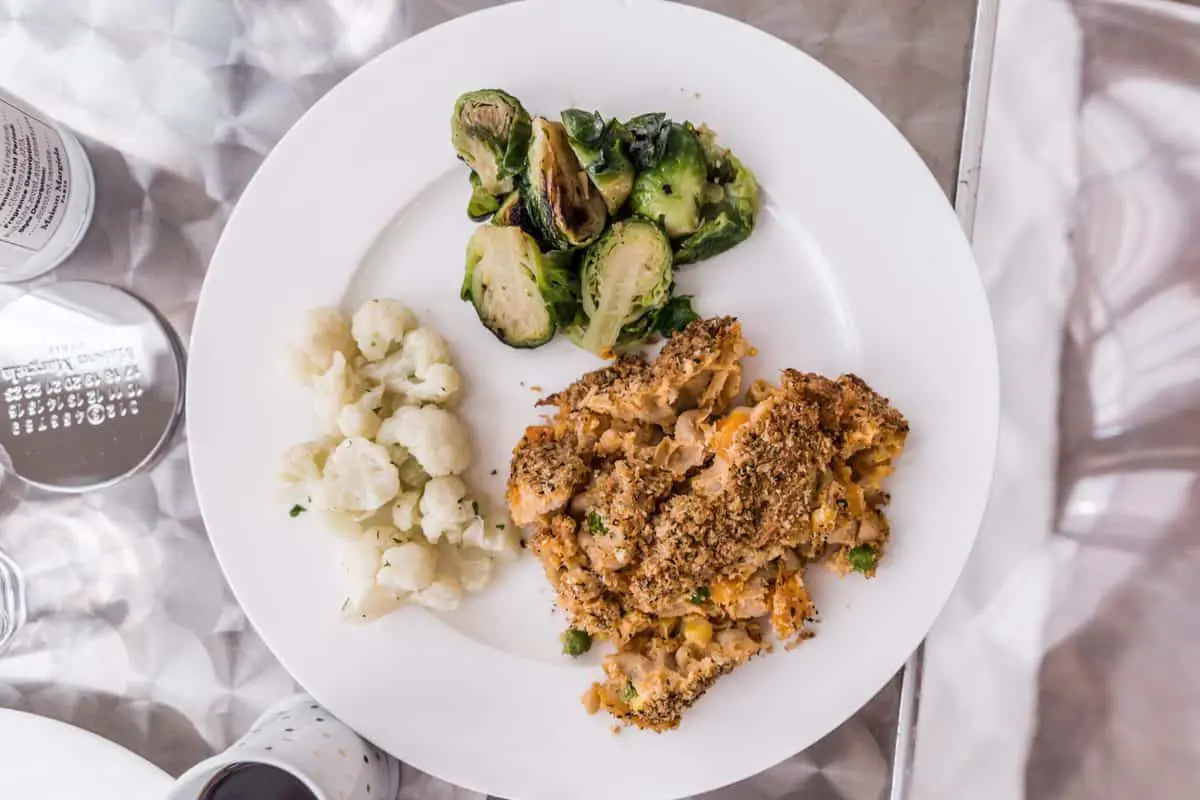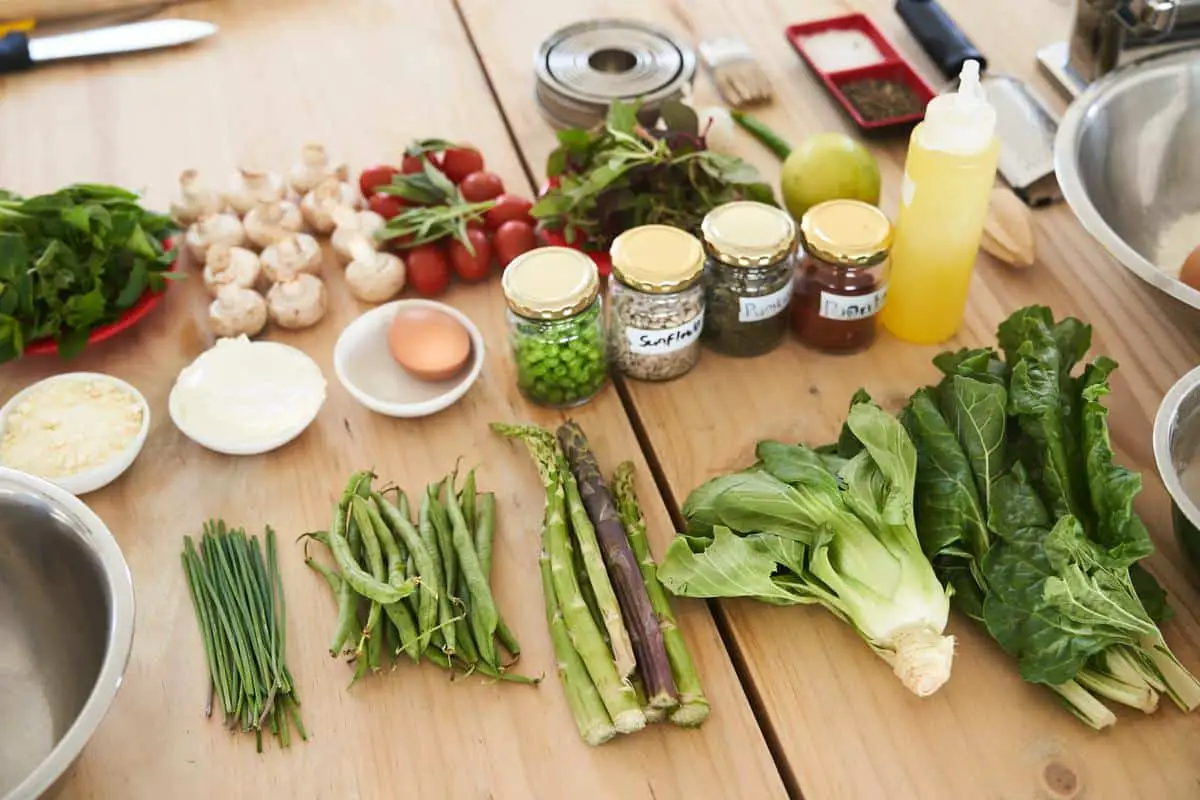It's no secret that marketing claims on food product labels are good for selling these products at premium prices.
According to this Food Engineering article, people are willing to pay higher costs for convenient, delicious products that are aligned with their beliefs.
A label like "cruelty-free" will undoubtedly appeal to a vegetarian who wants to end animal abuse and suffering.
Cruelty-free products are not automatically vegetarian. While no animals can be tested on or mistreated if you want to certify a cruelty-free product, it may still use animal-based ingredients that are not vegetarian. Likewise, some vegetarian products may contain ingredients tested on animals, meaning they cannot be cruelty-free.
People often misunderstand the term cruelty-free. Just because the product is cruelty-free does not mean that it will align perfectly with your vegetarian principles. Read on to find out why.
Animal Testing for Food Products
The US Government Accountability Office reveals that around 10 percent of health claims for food product labels need some sort of scientific proof to back them up. And because these claims are for human health or diseases, many companies choose to test on animals.
There is almost no way for consumers to know if a particular food product or its ingredients had some animal testing done. But what you can consider is that individual companies often use animal testing to claim that their products have certain health benefits.
This is usually done for marketing purposes, and a good example is Barilla's pasta products. Luckily, they stopped with animal testing in 2015.
Other companies that have been caught testing on animals include:
The Problem with Animal Testing and Food Products
A probiotic drink, a pasta brand, and baby formula are food items that you will not readily associate with animals. All of these things can easily be vegetarian - but are they actually cruelty-free?
Many companies making food products like these have been caught conducting animal testing – whether it's for the final product itself or some of its ingredients.
But the most disappointing part of this situation is that these companies are not legally bound to disclose if they conduct animal testing. Unlike cosmetics, there are currently no certification programs for manufactured food to be established as cruelty-free.
The Problem with the Term "Cruelty-Free"
One reason why there are no certification programs for manufactured food to be established as cruelty-free is because the term cruelty-free has not yet been legally defined by the United States Food and Drug Administration.
That means it is often open to interpretation, and some companies do take advantage of it while consumers get confused.
Most people think that having "cruelty-free" on the label means that no animals were killed, harmed, or experimented on in manufacturing the product. That is only true for some products – not all of them. For instance, some companies may claim to be cruelty-free if their finished product was not tested on animals, but the ingredients they used were.
Other companies also mislead people with this label when they claim that their products are cruelty-free because their current line-up has not been tested on animals. However, they may have tested an earlier batch on animals, or they might have hired an outside laboratory to do animal testing for them.
Without a concrete definition of the term cruelty-free, there is a lot of room for manufacturers to conduct animal testing and still be classified as cruelty-free. Many organizations will take the unethical path to benefit their pockets first.
Are Cruelty-Free Products Vegetarian?
Having the words' cruelty-free' on a food product's label doesn't guarantee that it is vegetarian.
A product may be designated as cruelty-free, but it may have animal-derived products in them.
In cosmetics, some common non-vegetarian ingredients that could be classified as cruelty-free but not vegetarian include:
Just remember that when you find the words "cruelty-free" on a product label, it purely means that the company does not conduct animal testing. However, they may still have animal and animal byproducts in them that are not vegetarian.
Can Animal Products be Cruelty-Free and Vegetarian?
Vegetarianism is a diet and lifestyle with a few interpretations, and it is a lot more inclusive of animal byproducts than veganism, which uses absolutely nothing. The underlying principle of vegetarianism is that it opposes the abuse, slaughter, and harming of animals.
Meat and other food products that are derived from killing animals are certainly off the list of things you can eat, and these include:
However, some vegetarians eat animal products that don't come from animal slaughter, such as eggs and milk.
If we stick to the understanding that cruelty-free means no animal-testing whatsoever – then yes! All these products mentioned can be both cruelty-free and vegetarian.
Veganism, on the other hand, is quite different. The rules are much stricter and it’s harder to find vegan products that are not also cruelty-free. If this is in line with your ethical code, then you need to check out this article: Are Cruelty-Free Products Vegan?
Are All Vegetarian Products Cruelty-Free?
Vegetarianism mostly refers to one's diet, where animal and animal byproducts are excluded for ethical, nutritional, ascetic, or environmental reasons. According to this site, vegetarianism is relying solely on grains, fruits, vegetables, nuts, and legumes to live.
Sometimes, you can add eggs, dairy, and milk products into the mix. And ethically, vegetarians usually choose products that were obtained without cruelty to the animals.
However, this is not necessarily a given. Many animal byproducts are still harvested cruelly. So it is up to you as the consumer to look for foods and other products that are as cruelty-free as possible.
When it comes to cosmetics – look for the certification labels at the back of the bottles. And when it comes to food, try to source locally and from a small business that you can grow to know and trust.
You will always be less likely to find cruelty-free foods in a commercial supermarket. If you need more information around certification labels you can trust, read this article: Which Cruelty-Free Logos Can You Trust in 2021?
Get to know the farmer's markets in your area and ask different businesses what they define as cruelty-free. Smaller organizations that are proud of their products are dedicated to providing value and being honest with you about their practices.
This can be a daunting activity, and one of the main reasons why is because of the cost. There’s a misconception that buying cruelty-free products has to be more expensive, and that is simply not true. If you need some help, we show you exactly how to be pennywise and ethically conscious here: Are Cruelty-Free Products More Expensive?
Conclusion
The terms "cruelty-free" and "vegetarianism" all put forward the idea that no animal should be harmed, killed, or experimented upon so that humans can have something to eat or products to use.
However, it's dangerous to misunderstand cruelty-free and take it to mean vegetarian.
It's not the same thing, and you need to read your packages carefully. Look for a smaller business that you can trust to source ethical foods or other products within your area and take the time to find what fits your set of values and ethics.


